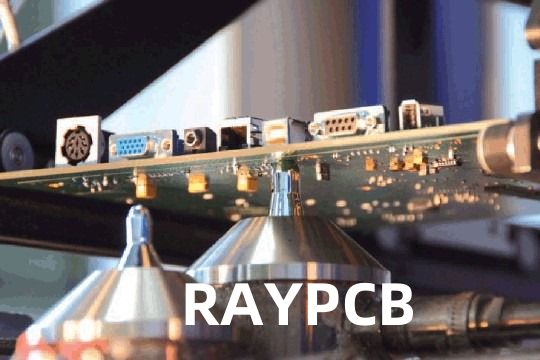History of PCB Manufacturing in Thailand
Thailand’s electronics industry began to take off in the 1980s as the country shifted from an agricultural-based economy to one focused on manufacturing and exports. The Thai government implemented policies to attract foreign investment, including tax incentives, import duty exemptions, and the establishment of industrial estates with modern infrastructure.
In the 1990s, many multinational electronics companies, such as Seagate, Fujitsu, and Samsung, set up operations in Thailand to produce hard disk drives, printed circuit boards, and other components. This influx of foreign investment helped to develop Thailand’s electronics supply chain and build up its manufacturing capabilities.
The PCB industry in particular has grown significantly over the past few decades. According to the Thailand Board of Investment (BOI), there are now over 100 PCB manufacturers in Thailand, ranging from small local firms to large multinational companies. In 2020, despite the impact of the COVID-19 pandemic, Thailand’s exports of printed circuits reached $3.2 billion, up 2.5% from the previous year.
Key Players in Thailand’s PCB Industry
Some of the major PCB manufacturers in Thailand include:
- Fabrinet Co., Ltd.
- Headquartered in Pathumthani, Thailand
- Provides advanced optical packaging and precision electro-mechanical assembly services
- Serves clients in the automotive, aerospace, industrial, telecom, and medical industries
- KCE Electronics Public Co., Ltd.
- Based in Ladkrabang, Bangkok
- One of the largest PCB manufacturers in Southeast Asia
- Produces single-sided, double-sided, and multi-layer PCBs for automotive, telecom, and consumer electronics applications
- Stars Microelectronics (Thailand) Public Co., Ltd.
- Located in Ayutthaya, north of Bangkok
- Offers PCB Assembly, IC Packaging, and full turnkey services
- Serves clients in the automotive, industrial, medical, and consumer electronics sectors
- Hana Microelectronics Public Co., Ltd.
- Headquartered in Lamphun, northern Thailand
- Provides PCB assembly and test services
- Has additional manufacturing facilities in China, Cambodia, and the United States
- Cal-Comp Electronics (Thailand) Public Co., Ltd
- Based in Samut Prakan, southeast of Bangkok
- Offers PCB and box-build assembly services
- Serves clients in the computer, networking, telecom, and consumer electronics industries

Advantages of PCB Manufacturing in Thailand
Thailand offers several advantages for PCB manufacturing, including:
1. Skilled Workforce
Thailand has a large pool of skilled workers with experience in electronics manufacturing. Many Thai universities and vocational schools offer training programs in electrical engineering, computer science, and related fields. This ensures a steady supply of qualified personnel for the PCB industry.
2. Well-Developed Infrastructure
Thailand has invested heavily in its infrastructure to support manufacturing and exports. The country has modern highways, ports, and airports that facilitate the movement of goods and materials. Thailand also has several industrial estates with ready-built factories, utilities, and logistics services that cater to electronics manufacturers.
3. Attractive Investment Incentives
The Thai government offers a range of incentives to attract foreign investment in the electronics industry. These include:
- Corporate income tax exemptions for up to 8 years
- Exemptions on import duties for machinery and raw materials
- Permits to own land and bring in foreign experts
- Assistance with work permits and visas for foreign staff
4. Strategic Location
Thailand is located in the heart of Southeast Asia, providing easy access to major markets such as China, Japan, South Korea, and India. The country is also a member of the ASEAN Free Trade Area, which allows for tariff-free trade among member countries. This makes Thailand an ideal base for electronics companies looking to serve the growing Asian market.

PCB Manufacturing Process in Thailand
The PCB manufacturing process in Thailand typically involves the following steps:
- Design: The PCB design is created using computer-aided design (CAD) software. The design includes the circuit layout, component placement, and routing of the copper traces.
- Prototyping: A prototype of the PCB is fabricated and tested to ensure that it meets the required specifications. Any necessary changes are made to the design before mass production begins.
- Fabrication: The PCB is fabricated using a multi-step process that includes:
- Printing the circuit pattern onto a copper-clad substrate using a photoresist and etching away the unwanted copper
- Drilling holes for component placement
- Applying a solder mask and silkscreen to protect the copper traces and label the components
- Assembly: The electronic components are mounted onto the PCB using automated pick-and-place machines or manual soldering. The assembled PCB is then tested to ensure that all the connections are correct.
- Testing: The finished PCB undergoes a series of tests to verify its functionality, reliability, and durability. These tests may include:
- In-circuit testing (ICT) to check for short circuits, open circuits, and incorrect component values
- Functional testing to ensure that the PCB performs as intended
- Environmental testing to simulate the conditions that the PCB will be exposed to in its end-use application
- Packaging and Shipping: The tested PCBs are packaged and shipped to the customer or to the next stage of the manufacturing process, such as final assembly into a finished product.
Many PCB manufacturers in Thailand offer turnkey services that cover the entire manufacturing process from design to final assembly. This allows electronics companies to outsource their PCB production and focus on their core competencies, such as product development and marketing.

Future Outlook for PCB Manufacturing in Thailand
The outlook for PCB manufacturing in Thailand remains positive, driven by several factors:
1. Growing Demand for Electronics
The global demand for electronic products, such as smartphones, tablets, laptops, and IoT devices, is expected to continue to grow in the coming years. This will drive demand for PCBs, which are a key component in these products.
2. Shift to 5G and IoT
The rollout of 5G networks and the proliferation of IoT devices are expected to create new opportunities for PCB manufacturers in Thailand. 5G technology requires more complex and high-density PCBs to support faster data speeds and lower latency. IoT devices also require miniaturized and Flexible PCBs to fit into small form factors.
3. Diversification into New Industries
Many PCB manufacturers in Thailand are diversifying into new industries, such as automotive, medical, and aerospace, to reduce their dependence on the consumer electronics sector. These industries require high-reliability PCBs that can withstand harsh environments and meet strict quality standards.
4. Government Support
The Thai government has identified the electronics industry as a key driver of economic growth and is providing support through various policies and initiatives. For example, the government has launched the “Thailand 4.0” strategy to promote innovation and digital technology in manufacturing. It has also established the Eastern Economic Corridor (EEC) to attract investment in high-tech industries, including electronics.
However, there are also some challenges that the PCB industry in Thailand will need to navigate, such as:
- Intense competition from other countries, particularly China and Vietnam
- Rising labor costs and a shortage of skilled workers
- Disruptions to global supply chains due to trade tensions and the COVID-19 pandemic
Despite these challenges, Thailand remains a competitive location for PCB manufacturing due to its skilled workforce, well-developed infrastructure, and supportive government policies. Many multinational electronics companies continue to invest in Thailand, attracted by its strategic location and access to the growing Asian market.
PCB Thailand: Frequently Asked Questions (FAQ)
1. What types of PCBs are manufactured in Thailand?
PCB manufacturers in Thailand produce a wide range of PCBs, including:
- Single-sided PCBs
- Double-sided PCBs
- Multi-layer PCBs (up to 40 layers)
- Flexible PCBs
- Rigid-flex PCBs
- High-density interconnect (HDI) PCBs
2. What industries are served by PCB manufacturers in Thailand?
PCB manufacturers in Thailand serve a variety of industries, including:
- Consumer electronics
- Automotive
- Telecommunications
- Industrial control
- Medical devices
- Aerospace and defense
3. What certifications do PCB manufacturers in Thailand typically hold?
Many PCB manufacturers in Thailand hold international quality certifications, such as:
- ISO 9001 (quality management)
- ISO 14001 (environmental management)
- IATF 16949 (automotive quality management)
- AS9100 (aerospace quality management)
- ISO 13485 (medical device quality management)
4. What is the minimum order quantity (MOQ) for PCBs in Thailand?
The minimum order quantity varies among PCB manufacturers in Thailand, but it is typically around 100-500 pieces for standard PCBs. For more complex or customized PCBs, the MOQ may be higher.
5. What is the lead time for PCB production in Thailand?
The lead time for PCB production in Thailand depends on the complexity of the PCB and the order volume. For standard PCBs, the lead time is typically 1-2 weeks. For more complex or high-volume orders, the lead time can be 4-6 weeks or longer.
Conclusion
Thailand has established itself as a major player in the global PCB manufacturing industry, thanks to its skilled workforce, well-developed infrastructure, and attractive investment incentives. With a growing demand for electronics and a shift towards new technologies such as 5G and IoT, the outlook for PCB manufacturing in Thailand remains positive.
However, to stay competitive, PCB manufacturers in Thailand will need to continue to innovate, diversify into new industries, and navigate challenges such as rising labor costs and global supply chain disruptions. By doing so, they can position themselves for long-term growth and success in the dynamic and ever-evolving electronics industry.

No responses yet